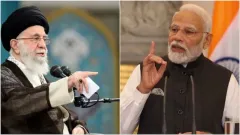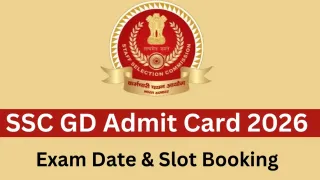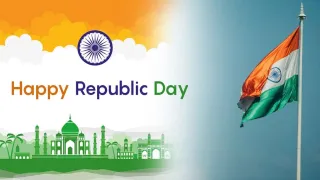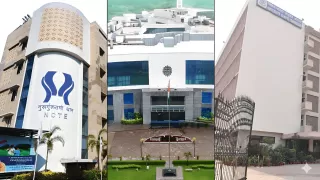Many aspiring candidates appear each year to take the toughest exams in India. Examinations are more than mere tests of a person’s knowledge — they serve as gateways to prestigious careers, life-changing opportunities, and the ultimate tests of endurance and determination. These exams separate the extraordinary from the ordinary, demanding not just knowledge but resilience, time management, and a strategic mindset.
We’re talking about the toughest exams in India — the ones that even the brightest students find challenging. These aren’t just exams; they’re battles of intellect, discipline, and willpower. Success in these tests can lead to some of the most coveted careers in administration, engineering, medicine, law, or research. Understanding how to prepare, what to avoid, and how to handle pressure is essential for anyone daring to take them on.
Whether you’re planning to attempt one of these exams yourself or simply curious to know which ones top the list each year, you’re in the right place. Let’s explore the top 10 toughest exams in India that have shaped countless careers and continue to inspire millions of aspirants across the nation.
10. NID Entrance Exam (Design Aptitude Test)
The National Institute of Design (NID) conducts the Design Aptitude Test (DAT) to admit creative aspirants into its renowned undergraduate and postgraduate programs. The exam is designed to assess originality, artistic expression, visualization, and problem-solving skills through real-world design challenges.
With limited seats and a multi-stage evaluation that includes a portfolio review and interview, NID DAT stands as one of India’s most competitive creative exams. It pushes candidates to think beyond textbooks and express unique perspectives through their designs.
- Conducted by the National Institute of Design
- Tests creativity, drawing, and design thinking
- Includes written exam, portfolio, and interview
- Duration: 3 hours
9. UGC NET (National Eligibility Test)
UGC NET is a national-level exam conducted by the National Testing Agency to determine eligibility for Assistant Professorship and Junior Research Fellowships. It evaluates a candidate’s in-depth subject knowledge and analytical reasoning skills.
Held twice a year, this exam is one of the most challenging for postgraduates aspiring to build a career in academics or research. It requires strong conceptual understanding and the ability to interpret complex topics under time pressure.
- Conducted by NTA on behalf of UGC
- Two papers: General Aptitude and Subject-specific
- Held twice a year
- Duration: 3 hours
8. NDA (National Defence Academy Exam)
The NDA exam, conducted by the UPSC, recruits candidates for the Army, Navy, and Air Force wings. It is a blend of academic and personality-based testing that includes a written exam, SSB interview, and medical assessment.
It not only evaluates intelligence but also leadership, teamwork, and discipline. Many aspirants consider NDA the toughest route to a military career, demanding both physical endurance and mental sharpness.
- Conducted by UPSC
- Written exam + SSB Interview + Medicals
- Two papers: Mathematics and General Ability
- Duration: 2.5 hours each
7. Chartered Accountancy (CA)
The Chartered Accountancy exam, managed by the ICAI, is one of the toughest professional exams in the country. Divided into three stages — Foundation, Intermediate, and Final — it requires exceptional command over finance, taxation, auditing, and accounting principles.
Low pass percentages and the vast syllabus make it a long-term commitment. Aspiring CAs often prepare for years to achieve this globally respected qualification that opens doors to diverse career paths in finance.
- Three levels: Foundation, Intermediate, Final
- Pass percentage in single digits
- Held twice a year
- Equivalent to a postgraduate qualification
6. CLAT (Common Law Admission Test)
CLAT is the entrance exam for India’s top law universities — the NLUs. It tests a student’s comprehension, logical reasoning, legal aptitude, and awareness of current affairs through an intense two-hour exam.
The limited number of seats and the high cut-offs make CLAT highly competitive. Success requires not only knowledge of law-related topics but also speed and precision under time constraints.
- Conducted annually by Consortium of NLUs
- 150 questions in 2 hours
- Sections: Legal Aptitude, Logic, English, GK, Maths
- Seats are highly limited
5. NEET (National Eligibility cum Entrance Test)
NEET is the single national-level entrance exam for medical and dental courses in India. It assesses a student’s understanding of Physics, Chemistry, Botany, and Zoology, serving as the gateway to MBBS and BDS programs across the nation.
Over 20 lakh candidates compete each year for a limited number of seats, making NEET one of the toughest exams for science students. It demands deep conceptual clarity, time management, and accuracy under pressure.
- Conducted annually by NTA
- Over 20 lakh students appear yearly
- Subjects: Physics, Chemistry, Biology
- For admission to MBBS, BDS, AYUSH courses
4. CAT (Common Admission Test)
The CAT exam is the key to getting into India’s elite IIMs and other top management institutes. It evaluates candidates on quantitative aptitude, logical reasoning, and verbal ability, emphasizing decision-making and analytical skills under time pressure.
With less than 2% of candidates getting admission to IIMs, CAT is one of the hardest management entrance exams. It requires smart preparation, strong fundamentals, and quick-thinking skills.
- Conducted annually
- Three sections: Quant, LR/DI, Verbal
- Less than 2% selection rate
- Duration: 2 hours
3. GATE (Graduate Aptitude Test in Engineering)
GATE tests the technical expertise and conceptual understanding of engineering graduates. It’s used for admission to M.Tech programs and for recruitment into prestigious public sector companies.
The exam challenges candidates’ ability to apply engineering concepts to solve analytical and numerical problems. It is not just a test of memory but of deep understanding and application.
- Conducted once a year
- Accepted by IITs, NITs, and PSUs
- Used by organizations like ONGC, NTPC, BHEL
- Duration: 3 hours
2. IIT-JEE (Joint Entrance Exam – Advanced)
JEE Advanced is among the most difficult undergraduate entrance exams in the world. It’s the key to securing admission in the prestigious Indian Institutes of Technology (IITs). The exam pushes candidates to their intellectual limits with complex questions in Physics, Chemistry, and Mathematics.
It’s not enough to memorize formulas — success in JEE Advanced requires a deep conceptual understanding and problem-solving speed. Clearing it signifies mastery of logic and technical precision.
- Conducted by the National Testing Agency (NTA)
- Only top 2.5 lakh from JEE Mains qualify
- Focuses on conceptual problem-solving
- Extremely low success rate
1. UPSC Civil Services Exam
The UPSC Civil Services Exam tops the list as the toughest exam in India. Conducted by the Union Public Service Commission, it selects candidates for the most prestigious administrative positions such as IAS, IPS, and IFS officers.
The syllabus is vast, covering history, polity, economics, ethics, and current affairs. The three-stage selection process — Prelims, Mains, and Interview — demands intelligence, consistency, and strong analytical skills. Clearing UPSC is not just an achievement but a symbol of dedication and national service.
- Conducted annually by UPSC
- Three stages: Prelims, Mains, Interview
- Over 10 lakh applicants, less than 1% success rate
- Prelims: 2 hours per paper; Mains: 3 hours each
Also Read: Top 5 Biggest Airports in India 2025-26: Ranking Exposed























